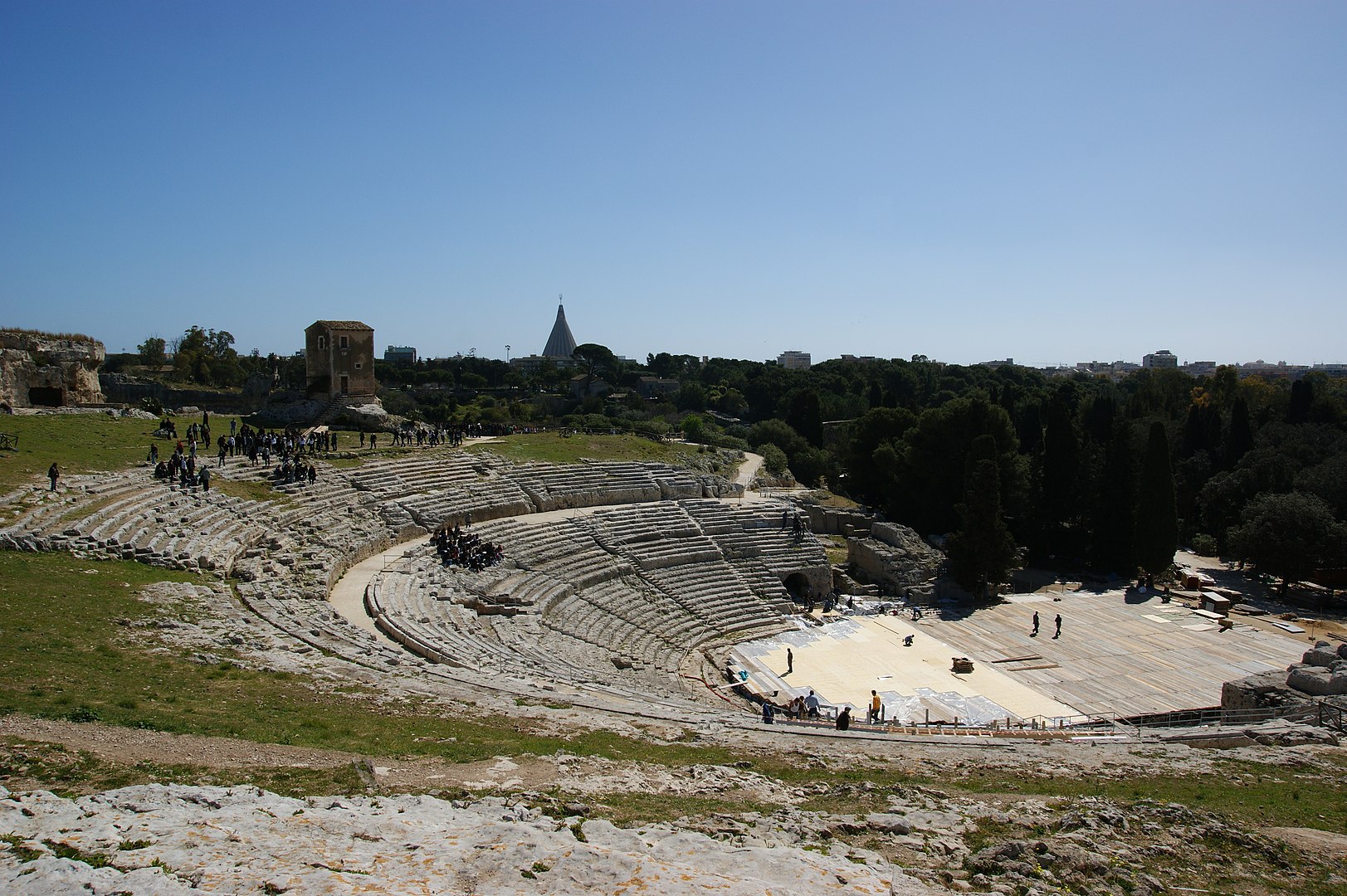In the 7th century BC, the Sicilian city of Syracuse was one of the gems of Magna Graecia, the coastal area of Southern Italy that was colonized by the ancient Greeks and influenced by their rich and vibrant culture.
Hellenic civilization contributed to the growth and flourishing of the city, as testified by artistic treasures that still can be admired today. Among them are the Temple of Apollo, the Ear of Dionysus – a limestone cave carved out of the hills – the Altar of Ierone II, and the Greek Theater.
The impressive Theater was built in the 5th century BC, and despite its still impressive dimension it was partially dismantled in the 16th century to make use of the stone and marble blocks.
During the summer season, the outdoor venue usually becomes an important part of Syracuse’s offer to the many local and international tourists who visit the city. By attending to one of the intense performances staged by the National Institute of Ancient Drama (INDA) – a non-profit foundation which since 2005 has managed the Theater’s productions with a crew of over 400 people -, classical theater lovers have the opportunity to enter a different reality, dating back to ancient times but still extremely modern.
Founded in 1914 by Count Mario Tommaso Gargallo, INDA celebrates this year its centenary of activity to promote the timeless values of classical theater and to make these works known to an audience of thousands of people from all over the world.
The first play to be staged at the Greek Theater was Aeschylus’ tragedy Agamemnon, which focuses on controversial themes like guilt, individual responsibility, and expiation.
The same piece was selected for the first cycle of season 2014, running May 9 through June 22, which will be longer than usual to celebrate INDA’s 100th anniversary. Besides Agamemnon, directed by Luca De Fusco and attended by an audience of over 4,000 people, it will also feature Aeschylus’ tragedy Coephores/Eumenides by Daniele Salvo, and Aristophanes’ comedy The Wasps directed by Mauro Avogadro.
The season’s opening was held in mid-April with a torch-bearing ceremony, followed by the piece Verso Argo staged by Manuel Giliberti. This was inspired by classical authors like Homer, Aeschylus, Euripides, and Gorgia, and dedicated to the late philologist and INDA’s collaborator Giusto Monaco.
The set and costume design of these special cycles has been entrusted to famed sculptor Arnaldo Pomodoro, and some of the most appreciated Italian stage actors have been involved in the commemorative initiative, such as Paola Gassman, Ugo Pagliai, and Piera Degli Esposti. Stage performances are also accompanied by cultural events taking place in Syracuse all summer long.
Among them are a series of conferences and exhibitions emphasizing the fruitful and long lasting relationship between INDA and other local institutions that support its effort to keep alive our classical artistic, literary, and theatrical tradition.
The original mission of the Foundation has remained the same over the last century, and hopefully it will continue to hand down this priceless heritage from one generation to the other.





























